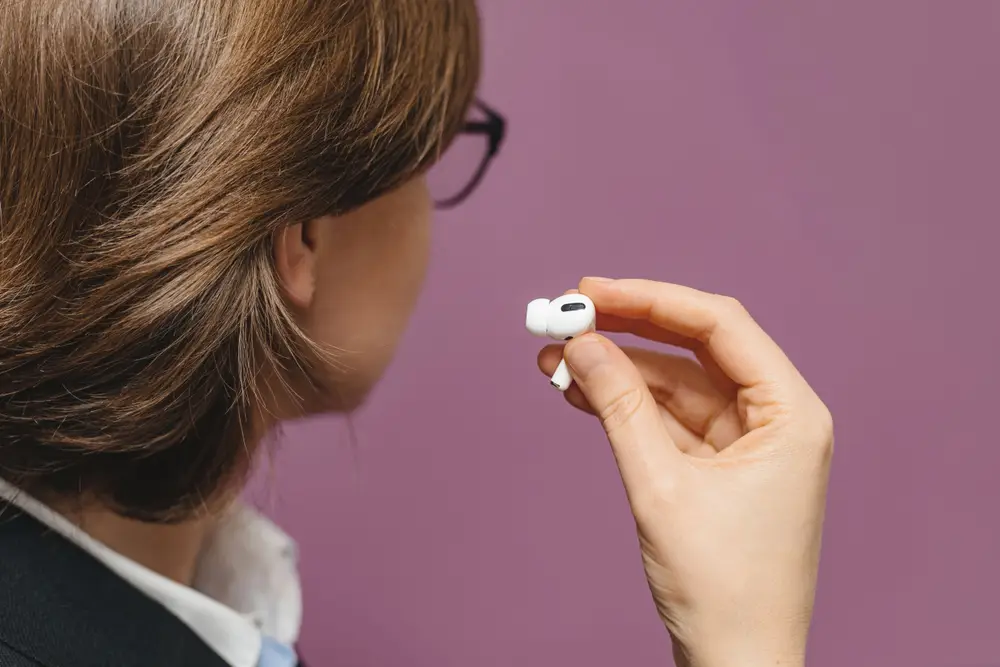When Apple launched the AirPods Pro Gen 1 in 2019, it promised a revolution in wireless audio.
The company touted these sleek, white earbuds as the ultimate fusion of style, comfort, and cutting-edge technology, delivering superior sound quality, immersive Active Noise Cancellation (ANC), and an overall premium listening experience.
However, for many AirPods Pro owners, that initial excitement quickly turned to frustration as reports of a persistent audio defect began to surface.
Three AirPods Pro consumers filed a class action lawsuit against Apple on November 1, 2024 alleging the tech giant knowingly sold the AirPods Pro Gen 1 with an inherent flaw that causes crackling, static, and distorted sound, leaving consumers high and dry.
AirPods Pro Gen 1 Alleged Audio Quality Defects
Shortly after the earbuds hit the market, users complained about several audio issues interfering with their listening experience.
The most common complaints centered around:
- Crackling and popping sounds that would abruptly interrupt audio playback.
- Static and distortion that made music, podcasts, and phone calls sound muffled or unclear.
- Audio dropping out entirely in one or both earbuds.
These problems persisted across multiple AirPods Pro units, suggesting a widespread defect rather than isolated incidents.
Users reported that the audio issues were especially noticeable when using the earbuds' Active Noise Cancellation or Transparency modes, key selling points of the AirPods Pro.
Apple's Initial Response Falls Flat
In 2020, after months of mounting consumer complaints, Apple finally acknowledged the audio defect.
The company quietly announced a free replacement program for AirPods Pro units manufactured before October 2020, conceding that some devices could experience sound issues.
However, the class plaintiffs allege that the audio defect is inherent to all first-generation AirPods Pro, regardless of manufacture date, and that Apple's repair program offered only a temporary band-aid rather than an effective fix.
According to the lawsuit, the replacement AirPods Pro's also exhibited the same crackling and static problems as their original pair, sometimes within days or weeks of receiving the new units.
Examining the Claims Inside the Apple AirPods Class
The proposed class action, filed in a federal court in California, makes several serious allegations against Apple regarding the AirPods Pro Gen 1.
1. Inherent Design Defect
The plaintiffs claim that all first-generation AirPods Pro suffer from a design defect that causes the various audio issues reported by users, arguing this flaw is inherent to the product itself, not just a manufacturing glitch in some units.
2. Apple's Prior Knowledge
Legal counsel has alleged that Apple knew about the audio defect before or when it started selling the AirPods Pro based on pre-release testing data, early customer complaints, and its internal analysis. Yet, the company continued to market and sell the headphones without disclosing the flaws to consumers.
3. False Advertising
According to the suit, Apple misrepresented the AirPods Pro as high-quality earbuds with "pure, high-quality sound" and "magical" listening experiences in its advertising and marketing - claims the plaintiffs say were false given Apple's awareness of the defect.
4. Inadequate Response
Apple's repair program was also allegedly insufficient, as it often resulted in customers receiving replacements just as defective as their original units. Plaintiffs claim Apple lacked an effective fix because the audio issues stem from a deeper design flaw.
5. Unjust Enrichment
The lawsuit contends that Apple profited unjustly from sales of the defective AirPods Pro, as customers wouldn't have purchased the premium-priced earbuds or would have paid less if they had known about the audio defect.
The suit demands monetary damages for affected consumers and injunctive relief to push Apple to address the defect more thoroughly.

Proving How Apple Misled Consumers and Prior Knowledge
To support their claims, AirPods Pro plaintiffs highlight apparent differences between the defective first-generation model and Apple's redesigned second-generation earbuds launched in 2022.
Design Changes
Technical analysis of the AirPods Pro Gen 1 and Gen 2 shows significant changes to key audio components:
- Faster H2 processor chip in Gen 2 vs Gen 1's H1 chip, enabling speedier processing of noise cancellation algorithms.
- Repositioned vents and microphones in Gen 2 to improve ANC performance.
- Reconfigured speaker drivers and acoustic filters in Gen 2.
Implicit admission
These hardware updates may demonstrate that Apple knew the corresponding parts in the Gen 1 model were flawed and contributing to the audio defects experienced by users.
In other words, the court may infer that the Gen 2 design changes were an implicit admission that the Gen 1 components were causing problems Apple needed to address.
No Recall
However, rather than thoroughly fixing or recalling the defective first-generation units, Apple continued to sell them until the Gen 2 release in 2022 while promoting the AirPods Pro as top-tier audio devices.
Next Steps in the AirPods Class Action Lawsuit
This class action lawsuit is still in its early stages, with several procedural hurdles to clear before plaintiffs can advance their claims against Apple in court.
The first major test will be class certification, where plaintiffs must convince the judge that their alleged injuries are similar enough to warrant treating AirPods Pro buyers as a group (or "class").
If the judge certifies the class, the lawsuit can proceed on behalf of all affected consumers, not just the handful of named plaintiffs.
Once certified, Apple must decide whether to fight the allegations at trial or pursue a settlement.




Add Comment